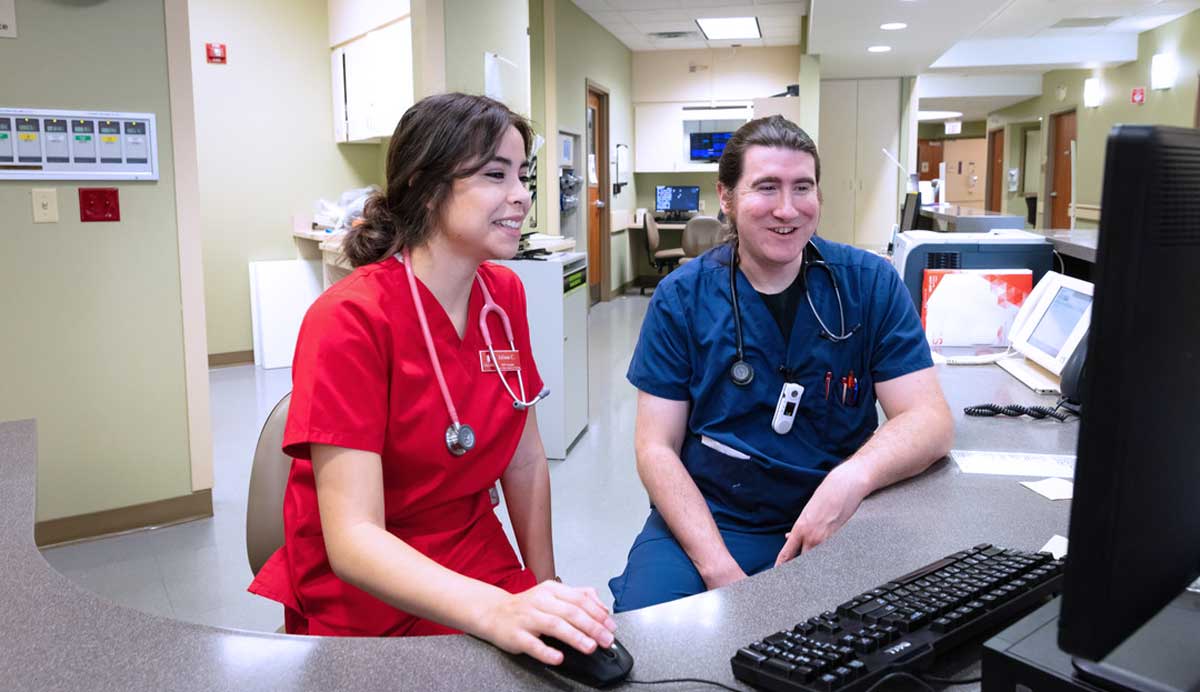Bachelor of Science in Nursing

Pre-licensure Option
Prospective Nursing Students
Nursing offers graduates a variety of professional choices. University of Arkansas graduates are prepared for hospital, school and community settings where they manage acute and chronic patient care and promote health and wellness. Nursing specialties include geriatrics, dialysis, oncology, emergency, hospice and many others.
Nursing requires strong emotional, intellectual and physical capabilities. Students who are admitted to the program are expected to possess the following abilities and skills:
- Critical thinking, problem solving and the ability to generate hypotheses
- Strong psychomotor skills and a capacity to reason, analyze, synthesize and work independently of others
- Exceptional communication skills with patients and staff
- Exemplary social skills, a quick-thinking and empathetic nature, and the ability to maintain calm during emergency situations
The Baccalaureate Graduate
The baccalaureate graduate as a member of the discipline uses knowledge from a research base to fulfill the roles of the nurse in contemporary society as a caregiver, manager, teacher and/or researcher. On entry into practice the graduate makes clinical judgments using critical thinking and other key nursing concepts to address health care needs in diverse settings. The baccalaureate nurse works singularly or in collaboration with other health care professionals in coordinating and promoting the health of culturally diverse clients.
Applications are accepted twice each year — Oct. 1-15 and March 1-15. Admission Requirements has details.
- Pre-Licensure Nursing B.S.N. Curriculum Program Plan — eight-semester grid
Career Opportunities for B.S.N. Graduates
Nursing offers graduates a wide variety of professional choices. University of Arkansas graduates are prepared for hospital, school and community settings where they manage acute and chronic patient care and promote health and wellness. Nursing professionals specialize in geriatrics, dialysis, oncology, emergency, hospice and many other areas of health care.
Program Learning Outcomes
The goal of the B.S.N. program is to prepare graduates to:
- Integrate evolving nursing knowledge and knowledge from other disciplines to make innovative and effective clinical decisions
- Provide culturally congruent, person-centered care that respects the uniqueness, dignity and worth of individuals
- Advocate for the health needs of diverse populations to increase health equity and promote social justice
- Synthesize evidence to inform nursing practice and contribute to the positive transformation of health care
- Utilize improvement science to refine health care processes essential for the provision of high quality, safe and cost-effective patient care
- Collaborate effectively and intentionally with other health care professionals and community stakeholders to provide optimized health care
- Steward resources and partnerships to provide safe, quality and equitable care to all people
- Employ information and health care technologies appropriately to support patient care, communication and effective decision making
- Exhibit collegial, accountable and emotionally intelligent behavior aligned with the American Nurses Association’s Code of Ethics and the Arkansas Nurse Practice Act
- Demonstrate a commitment to personal wellness, lifelong learning and transformational leadership practice
Two Degree Options with Licensure
- The L.P.N. to B.S.N. online program provides the opportunity for a Licensed Practical Nurse with a certificate to earn a B.S.N.
- The R.N. to B.S.N. online program provides the opportunity for a Registered Nurse with an associate's degree and diploma to earn a B.S.N.